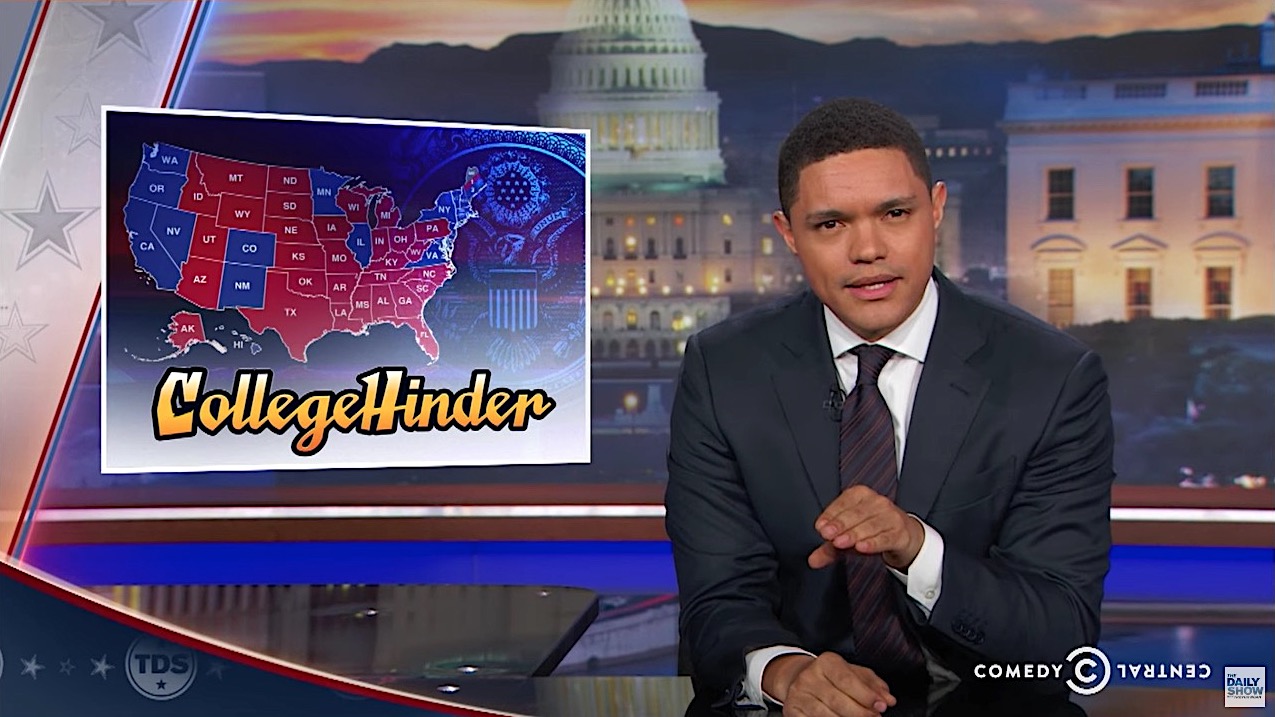Trevor Noah counts the ways the Electoral College is a bizarre, anti-democratic aberration


A free daily email with the biggest news stories of the day – and the best features from TheWeek.com
You are now subscribed
Your newsletter sign-up was successful
Trevor Noah is confused at how Hillary Clinton can win more than 2.5 million more votes than Donald Trump and still lose the presidency, and if you support the Electoral College that allowed this to happen — as many Republicans do after Trump's win — Noah makes some good points that are maybe more obvious to someone approaching the U.S. electoral system from the outside. "If you're like me, you probably thought that on Election Day, Americans were going to the polls to elect a president," he said on Wednesday's Daily Show. But no, confusingly, voters elect electors to vote on their behalf.
"There are two ways to pick a president," Noah said: "There's giving it to the person with the most votes — commonly known as democracy — and then there's how America does it," the Electoral College. "The person with more votes should win," he argued. "This is a weird system, because no other country decides elections this way. It's even weird in America, you understand that? You don't elect mayors like this in America, you don't elect governors like this, you don't even elect idols like this. The presidency is the only office where for some reason you don't trust the popular vote."
By the way, Noah said — before you can accuse him of playing partisan politics — "this is not about Trump. You know the system is broken because the person with more votes lost in two of the last five elections. That's 40 percent — 40 percent! If a plumber told me that every time I flushed my toilet, there'd be a 40 percent chance s—t would spray back at me, I'd be like, 'Maybe I need a new toilet.' But America's like, 'I've had this toilet for 200 years, I'll be fine, I'll be fine — [flush] — Trump!"
The Week
Escape your echo chamber. Get the facts behind the news, plus analysis from multiple perspectives.

Sign up for The Week's Free Newsletters
From our morning news briefing to a weekly Good News Newsletter, get the best of The Week delivered directly to your inbox.
From our morning news briefing to a weekly Good News Newsletter, get the best of The Week delivered directly to your inbox.

Thanks to the Electoral College, millions of people end up voting for the candidate they didn't vote for, Noah pointed out. "So the 4 million people who voted for Hillary in Texas? Or the 2.5 million who voted for Trump in New York? They just don't count. They're like lines of dialogue in a Fast and Furious movie — they're there, but they have no real value." He turned to a virtual Thomas Jefferson (Jordan Klepper) for advice on fixing the Electoral College, but there's only so much a smartphone app can do.
A free daily email with the biggest news stories of the day – and the best features from TheWeek.com
Peter has worked as a news and culture writer and editor at The Week since the site's launch in 2008. He covers politics, world affairs, religion and cultural currents. His journalism career began as a copy editor at a financial newswire and has included editorial positions at The New York Times Magazine, Facts on File, and Oregon State University.
